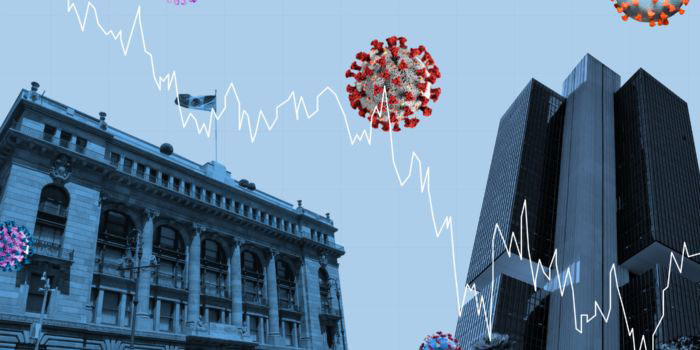The Evolution of Economic Policies Under Alan Greenspan
Dec 29, 2023 By Susan Kelly
Alan Greenspan's tenure as the Chairman of the Federal Reserve from 1987 to 2006 was marked by significant transformations in economic policies. Hailed as an era of stability and growth, Greenspan's leadership witnessed sweeping changes including the deregulation of financial institutions, the handling of economic crises, and the management of interest rates. His unconventional monetary policies significantly influenced the global financial landscape, shaping economic thought and financial markets. This document delves into an analysis of Greenspan's economic policy evolution, providing insight into his philosophy, key policy decisions, and the impact of these decisions on the American and global economy.
Biography of Alan Greenspan
Born in 1926 in New York City, Alan Greenspan showed an early interest in economics and financial markets. He studied at New York University, where he earned a Bachelor's degree, followed by a Master's and PhD from Columbia University. After completing his studies, Greenspan worked as an economic consultant for various government agencies and private firms before being appointed as the Chairman of the Council of Economic Advisers under President Gerald Ford in 1974.
During his tenure, Greenspan was known for his support of free-market economics and his belief in limited government intervention in the economy. This view would continue to shape his policies as Chairman of the Federal Reserve.
Greenspan's initial foray into economics and policy-making

In the late 1970s, as inflation soared to double digits and the economy was in turmoil, President Jimmy Carter appointed Paul Volcker as Chairman of the Federal Reserve. Under Volcker's leadership, interest rates were raised drastically in an effort to curb inflation, leading to a recession.
Following Volcker's resignation in 1987, Greenspan was nominated by President Ronald Reagan to succeed him as Chairman of the Federal Reserve. Greenspan's appointment was met with skepticism, due to his lack of experience in monetary policy and his previous support for Ayn Rand's philosophy of laissez-faire capitalism.
However, Greenspan quickly proved himself capable and adept at handling economic crises. In 1987, he successfully managed the stock market crash known as "Black Monday," and his policies were credited with aiding the recovery from the recession of the early 1990s.
Influences that shaped his economic philosophy
Greenspan's views on economics were heavily influenced by his belief in individualism and the power of the free market. He often cited Ayn Rand as a major influence, and was known for advocating for policies that promoted economic freedom and limited government intervention.
Additionally, Greenspan's experience working with economists such as Milton Friedman and Arthur Burns also shaped his economic philosophy, which emphasized the role of monetary policy in controlling inflation and promoting economic growth.
Greenspan's policies during his term as Chairman of the Federal Reserve
One of Greenspan's major contributions as Chairman was his push for deregulation of financial markets. This included the repeal of the Glass-Steagall Act, which had separated commercial and investment banking since the Great Depression. This move was met with both praise and criticism, with some arguing that it contributed to the 2008 financial crisis.
Greenspan also implemented a policy of low interest rates, which he believed would stimulate economic growth. This was exemplified in the early 2000s, when the Federal Reserve lowered interest rates to historic lows, leading to a housing boom and subsequent financial crisis.
Economic Policies and their Impact on the American and Global Economy

Greenspan's economic policies had a significant impact on both the American and global economy. While his low interest rate policy contributed to a period of economic growth, it also led to an increase in risky lending practices and ultimately, the 2008 financial crisis.
Furthermore, Greenspan's deregulation policies have been heavily criticized for contributing to the financial crisis as well. The lack of oversight and regulations in the financial industry allowed for risky practices to go unchecked, resulting in a widespread economic downturn.
In the aftermath of the 2008 financial crisis, Greenspan admitted that his belief in free markets and limited government intervention had been flawed. He stated that he underestimated the potential negative impact of deregulation on the economy.
Criticisms and Controversies
Despite his overall success as Chairman of the Federal Reserve, Greenspan faced criticism and controversies throughout his tenure. One prominent example is the "Greenspan put," a term used to describe the belief that he would intervene in financial markets to prevent large losses. This notion has been attributed to Greenspan's handling of the 1987 stock market crash and his policies during the dot-com bubble.
Additionally, Greenspan faced criticism for his handling of the housing market and failure to regulate risky lending practices. Many argue that he could have done more to prevent the 2008 financial crisis.
Legacy of Alan Greenspan
Alan Greenspan's leadership at the Federal Reserve left a lasting impact on the American and global economy. His policies, influenced by his belief in free markets and limited government intervention, shaped economic thought and financial markets for decades.
While he faced criticism and controversies during his tenure, Greenspan is still widely regarded as one of the most influential figures in modern monetary policy. His legacy continues to be studied and debated by economists and policymakers alike. Overall, Greenspan's impact on the economy will continue to be felt for years to come.
Conclusion
Alan Greenspan's journey from economist to Chairman of the Federal Reserve was a remarkable one. His belief in free market economics and limited government intervention shaped his policies and had a significant impact on the American and global economy. While he faced criticism during his tenure, Greenspan's legacy as a key figure in monetary policy remains strong. So, his contributions will continue to shape economic thought and financial markets for years to come. Therefore, Greenspan's legacy serves as a reminder of the importance of balancing individualism with government regulation in achieving a stable and prosperous economy. So, his impact will be felt for generations to come.





